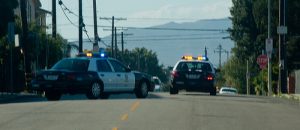Police Car Stops in New Jersey
 In New Jersey, much like in Pennsylvania, a major issue in any criminal defense is the initial police stop. This is a critical issue especially in criminal trials involving illegal drugs, guns (Graves Act), and driving while intoxicated (DWI). In many cases, the basis for the allegations against an accused come from evidence recovered following a car stop. Like any jurisdiction, New Jersey maintains within its Constitution protections against illegal searches and seizures, along with the Fourth Amendment to the United States Constitution.
In New Jersey, much like in Pennsylvania, a major issue in any criminal defense is the initial police stop. This is a critical issue especially in criminal trials involving illegal drugs, guns (Graves Act), and driving while intoxicated (DWI). In many cases, the basis for the allegations against an accused come from evidence recovered following a car stop. Like any jurisdiction, New Jersey maintains within its Constitution protections against illegal searches and seizures, along with the Fourth Amendment to the United States Constitution.
Obviously, if a police officer sees a specific vehicle code violation (speeding, failure to use turn signal, running a red light), that is probable cause to stop a car because of the violation. Probable cause, however, is a higher form of reasonable suspicion and in many situations police don’t articulate a specific code violation during a Motion to Suppress evidence.
Basis For the Car Stop–Reasonable Suspicion
In New Jersey, like Pennsylvania, the prosecution doesn’t need to prove an actual traffic violation to justify a traffic stop. The state only needs to establish by a preponderance of evidence that the officer had a reasonable and articulable suspicion that a violation had occurred. New Jersey courts allow police officers some latitude to investigate crimes and other circumstances that could threaten public safety (i.e. drunk driving). Much like a person staggering or making awkward movements down the street, a police officer has the right to stop and conduct an investigative detention of a suspect.
A common situation for many of our clients is where their vehicle, briefly, crosses a traffic line without signaling, but doesn’t cause an accident. The fact that the vehicle didn’t cause an accident is irrelevant to whether the officer had a reasonable and articulable suspicion to stop the car. In this situation, the officer actually had probable cause to stop because of the failure to use a signal is a violation of the motor vehicle code in Pennsylvania and New Jersey. Once the car is stopped, the police officer can obviously issue a citation for the vehicle code violation but also investigate any other suspicions of other crimes, like DWI.
Further Investigation After the Initial Stop
Keep in mind, however, that the officer must have independent suspicion of another crime after the vehicle is stopped and can’t simply rely on the original basis. When it comes to suspicion of DUI/DWI, or some offense involving illegal drugs or narcotics, police officers can use the evidence of certain odors, the appearance of the driver, or other passengers to investigate the situation further.
If you are stopped by police, either in New Jersey or Pennsylvania, I encourage you to be polite and respectful of the officer but do not consent to the search of your person or your car. I also recommend that you only provide the officer your drivers’ information and do not provide him any information regarding your travels. While you do not have a constitutional right against chemical testing (blood or breathalyzer), you don’t have to answer any questions which the officer poses to you.
Conclusion – Here’s the point!
The bottom line is police officers either in Pennsylvania or New Jersey don’t need much to stop your car! The State (New Jersey) and the Commonwealth (Pennsylvania) allow law enforcement to investigate their suspicions based on their training to ensure public safety. For more information I encourage you to keep reading my blog and check out our free download section.
Contact Our Criminal Defense Lawyers in PA & NJ
Please click here to contact our Philadelphia criminal defense lawyers. We offer free case reviews and serve the following areas in Pennsylvania and New Jersey, Atlantic City, Camden, Cherry Hill, Chester, Conshohocken, Doylestown, Media, Norristown, Philadelphi



